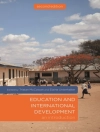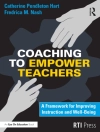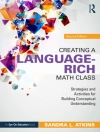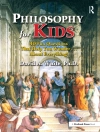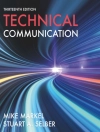Interpretations of the background to the Cuban diaspora – a political revolution and the subsequent radical transformation of the society and economy towards socialism – are politicised and highly contested. The Miami-based Cuban diaspora has had extraordinary success in putting its case high on the US political agenda and in capturing world media attention, but in the process the multiplicity of experiences within the diaspora has been overshadowed. This book gives voice to diasporic Cubans living in Spain, the former colonial ruler of Cuba. By focusing on their lived experiences of displacement, the book brings to light imaginative, narrative re-creations of the nation from afar. Drawing on extensive ethnographic fieldwork, the book argues that the Cuban diaspora in Spain consists of three diasporic generations, generated through distinct migratory experiences. This constitutes an important step forward in understanding the dynamics of memory-making and social differentiation within diasporas, and in appreciating why people within the same diaspora engage in different modes of transnational practices and homeland relations.
Inhoudsopgave
Introduction: The Changing Contours of a Contested Island
- Writing Cuba and Its Diaspora
- Cubans in Spain
- Post-colonial Subjects and Metropolitan Romance: Racialising Cubanness
- Encounters in Cádiz
- Outline of the Book
Chapter 1. Ethnography and the Politics of Fieldwork
- Doing Research in a Politicised Field
Chapter 2. Diasporic Generations
- Conceptualising Generation
- Cuba’s Contested Past
- Decolonisation, Independence and Spanish Migration to Cuba
- From Republic to Revolution
- The Creation of a Cuban Diaspora post-1959
- Emigration from Cuba after 1959
- Conclusion
Chapter 3. The Exiles: Bitterness and Nostalgia for a Lost Havana
- The Centro Cubano, the Círculo Católico and the Peña: Geographies of Longing
- Exilic Time-Spaces and Longing for Cuba
- Isabel and the Politicisation of Everyday Life
- Fractured Families: Marianito
- Ricardo: Conflicts Between New and Old Cuba
- Sergio: ‘A Right-wing Dictatorship is not the Same as a Left-wing Dictatorship’
- Conclusion
Chapter 4. The Children of the Revolution: Creating a Post-Cuban Space
- Cuba’s Hombre Nuevo
- Encuentro de la Cultura Cubana
- On Labelling and Name Calling
- Becaming and Feeling like a ‘Traidor’: Iván and Maida
- Counter-Discourses of Cosmopolitanism
- Conclusion
Chapter 5. The Migrants: Minimal Homelands
- Marriage Migration
- Commodified Cubanness
- Lucy: ‘In Spain I Have More Freedom’
- César and the Elusive Abundance of ‘El Capitalismo’
- Oscar: ‘I Had to Start from Zero’
- Puente Familiar con Cuba: a New Politics of Memory and Homeland
- Mirta and the Ambiguities of Distance
- Conclusion
Chapter 6. Gender, Diaspora, and the Body
- Time-Spaces, Memory and Forgetting
- The ‘Pain of Cuba’: Emotional Landscapes of Belonging
- Temporal and Spatial Alienation
- The ‘Fluids of Destiny:’ Beyond Trench Thinking
- Gender
- Life-stages and life-crises
- Identity Discourses
Chapter 7. The Memory of Politics and the Politics of Memory
Glossary of Spanish words
References cited
Notes
Over de auteur
Mette Louise Berg is a lecturer in the anthropology of migration at the University of Oxford. Her research focuses on memory, diaspora, transnationalism and intergenerational dynamics.


